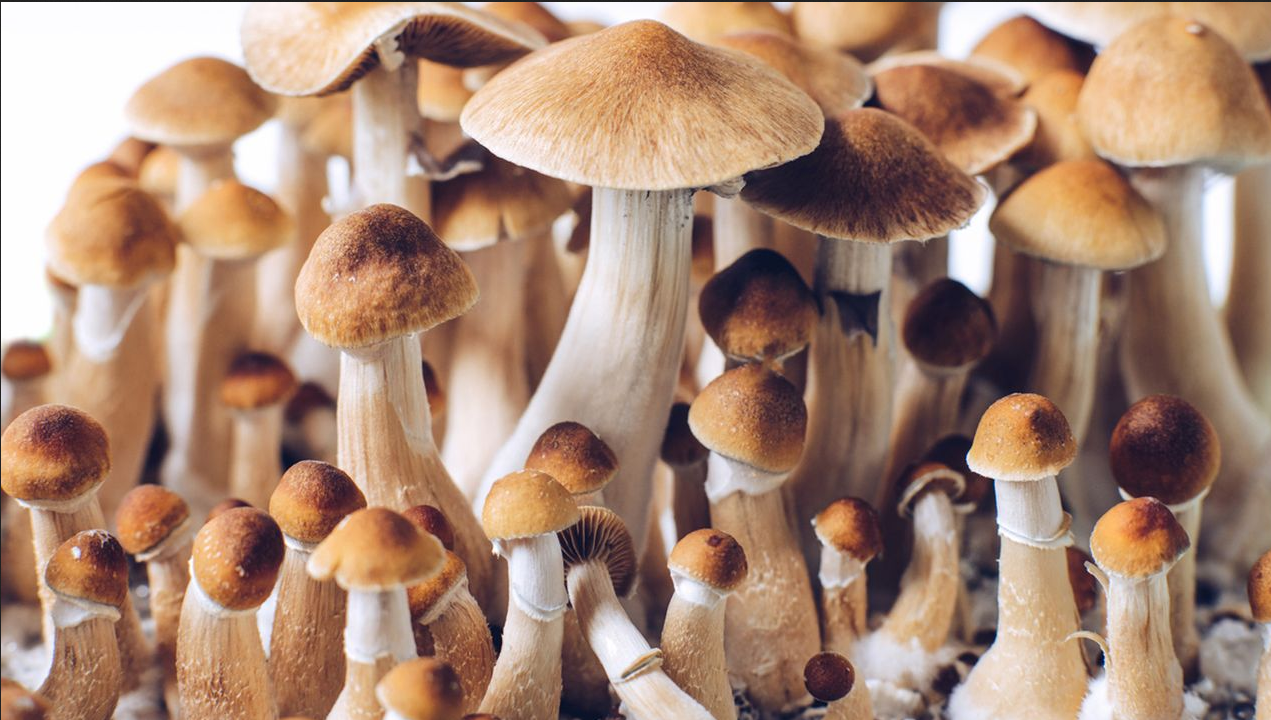A study published in the Journal of Psychopharmacology found that psychedelic mushrooms may help people with alcohol addiction better manage their drinking. In what researchers are calling the first randomized trial to examine the effects of psilocybin on any type of addiction, people who underwent two psychedelic mushroom trips with the help of a psychotherapist reduced “their days of heavy drinking by 83% over eight months,” said senior study author and psychiatrist Dr. Michael Bogenschutz, director of the NYU Langone Center for Psychedelic Medicine, in a news conference.
Individuals in the review, distributed Wednesday in the diary JAMA Psychiatry, polished off a normal of seven beverages on the days when they drank, Bogenschutz said.
“I’d say (psilocybin) saved my life,” said 32-year-old review member Jon Kostas at the news gathering. “My most memorable AA meeting was at 16 years of age. I was 25 when I tracked down the clinical preliminary and at that point, I was ‘treatment-safe.’ I had taken a stab at all that without any result.”
Toward the finish of the eight-month preliminary, 48% of the patients who utilized psilocybin detailed stopping liquor use completely, as per the analysts, who gathered hair and fingernail tests to affirm reports of forbearance. That is two times as numerous as those in the fake treatment bunch who had the option to go without, Bogenschutz said.
“In the event that these impacts hold up in ongoing preliminaries, psilocybin will be a genuine leap forward in the treatment of liquor use jumble,” said Bogenschutz, a teacher of psychiatry at NYU Grossman School of Medicine. He is likewise a paid specialist to a few organizations putting up hallucinogenics for sale to the public.
The requirement for new medicines for liquor abuse is basic, specialists say. Just three meds have been endorsed by the US Food and Drug Administration starting around 1949 to treat the illness and all have impediments, as per studies.
Be that as it may, while the treatment “appears to help a critical level of individuals,” it’s anything but a fix all, said Dr. David Hellerstein, teacher of clinical psychiatry at the Columbia University Irving Medical Center. He was not engaged with the examination.
“To me the most charming development (of the review) is that it is a totally different kind of treatment than has been customarily utilized for liquor dependence,” said Hellerstein, who behaviors research on psilocybin for treatment-safe misery.
“Thusly, it might open new roads for huge advancement with this staggering condition.”
Once more, what’s old is new
This isn’t whenever science first has concentrated on the utilization of hallucinogenics for liquor use jumble, characterized today as the powerlessness to quit drinking in any event, when it hurts the consumer or others.
UK specialist Dr. Humphry Osmond started giving LSD to treatment-safe drunkards during the 1950s and viewed that as 40% to 45% of the individuals who took LSD were as yet sober following a year. Different analysts copied his outcomes.
During the 1940s and mid 1950s, a huge number of patients took LSD and other psychotropics to concentrate on their impacts on disease uneasiness, liquor abuse, narcotic use issue, sorrow, and post-horrendous pressure problem or PTSD. Scientists started to see hallucinogenics as could be expected “new apparatuses for shortening psychotherapy.”
Yet, when Harvard clinicians Timothy Leary and Richard Alpert were terminated from the Harvard Psilocybin Project in 1962 after the college found they had been giving LSD to their understudies, the utilization of hallucinogenics for research started to lose its gloss.
Leary started to stand up freely, reassuring youngsters to casually take LSD. He immediately turned into the essence of the medication nonconformity development with his unmistakable message, “Turn on, tune in, quitter.”
Presently not managed exclusively in the general wellbeing of a lab or specialist’s office, LSD started to highlight with sickening dread accounts of terrible “corrosive” trips at schools and shows – – titles that showed up close by pictures of hostile to Vietnam fights and Woodstock participants.
In 1966, the United States prohibited LSD and exploration projects were closed down or constrained underground. Then, at that point, came the 1970 Controlled Substances Act, endorsed by President Richard Nixon. It grouped all hallucinogenics, including psilocybin, as Schedule I tranquilizes – – substances with “no right now acknowledged clinical use” and a high likelihood of misuse.
“Concentrates on come to a dramatic end,” Hellerstein said. “We are presently starting to get the ball really rolling.”



